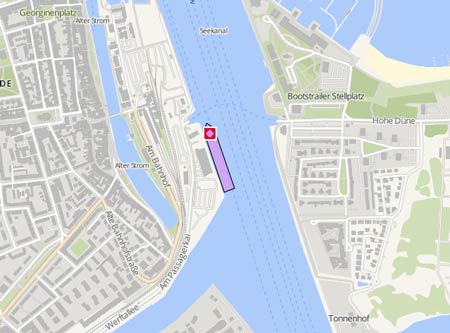AUSTRO CARINA
Kurs/Position
Die letzten Häfen
Die letzten Wegpunkte
Die neuesten Nachrichten
Report into grounding published
The 'Austro Carina' smashed into rocks off the Banks Peninsula on Sep 24, 2024, after sharply turning towards the shore while its wheelhouse was empty, a report of the Transport Accident Investigation Commission's report, released on March 25, 2025, found out. The trawler was carrying about 10 tons of diesel and 400 litres of hydraulic oil when it ran aground near a marine reserve at Red Bay. The four crew members abandoned the vessel, took shelter on shore, and were later winched to safety by a rescue helicopter. The vessel, however, received extensive damage, with its structural integrity deteriorating in the following days. The wreckage also threatened endangered species, including little blue penguins, hoiho/yellow-eyed penguins and seals. Wild weather which had battered the peninsula at the time also ripped a hole in the hull. Salvage efforts stalled because of the remote and rugged coastline before an insurer hired a salvage company to remove the wreck between Jan and Feb 2024. The Transport Accident Investigation Commission (TAIC) launched an inquiry in the days following the accident. The TAIC said the ship stranded because there was "nobody in the wheelhouse monitoring the vessel's course, speed and position while the vessel was turning to starboard. The master was assisting the crew on deck at the time of the stranding. Had the master maintained a continuous navigational watch, it is virtually certain they would have adjusted the vessel's course and speed, avoiding the stranding. While fishing, it was not uncommon for a master to step away from watchkeeping duties to help out on deck. The company's instructions to the master and watchkeepers were not explicit to require the wheelhouse to be attended at all times while fishing."" The commission recommended the vessel's operator, the Pegasus Fishing Limited, review its safety management system and take steps to ensure safe navigational watchkeeping principles are observed during all phases of the fishing operation. The report also said that the Maritime New Zealand's seafarer competency framework and the vessel operators safety management system prioritised collision avoidance over stranding and safe navigation: "This increases the risk of watchkeepers on fishing vessels not always maintaining a safe navigational watch when fishing." Maritime New Zealand said it supported the commission's intent and focus on watchkeeping, but was rejecting the recommendation: Its watchkeeping regulations aligned with international standards and its expectations were very clear in its position statement released in early 2024. "For these reasons, we do not consider that changes to competency frameworks will have a significant impact on reducing the instances of watchkeeping failures. We will, however, continue to work in partnership with the maritime sector on improving poor watchkeeping practices through a range of different initiatives. Watchkeeping is looking to see what is on the water around your vessel, such as other boats, the coast and hazards. Failing to keep watch has the potential to cause harm to those on vessels, others on the water near them, and the environment." Report with photo: https://www.odt.co.nz/star-news/star-christchurch/fishing-boat-smashed-rocks-when-no-one-wheelhouse
News schreiben

